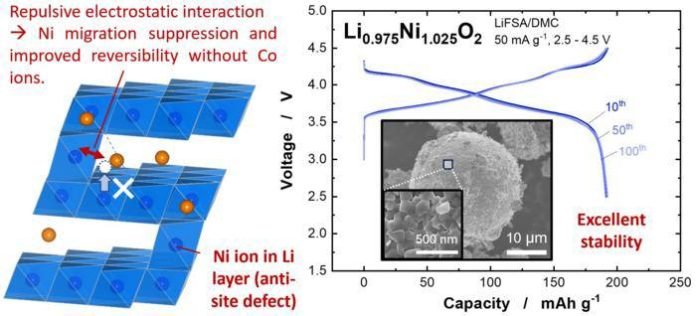
Researchers from Japanese and French universities have made significant strides in developing cobalt-free electrodes for lithium-ion batteries, commonly used in electric vehicles. The team has created a practical nickel-based electrode material detailed in a study published in the journal Energy Storage Materials on Jan. 15.
The move away from cobalt addresses environmental and social concerns tied to its extraction. While lithium nickel oxide has been considered as an alternative, instability issues persisted.
The researchers tackled this by partially substituting nickel ions with other metals, including cobalt, manganese, aluminum, and magnesium, resulting in “nickel-enriched layered materials.” Furthermore, they explored the use of phosphorous as a substitute for tungsten, effectively mitigating nickel-ion migration issues.
The findings present a promising avenue for developing high-performance and cost-effective cobalt-free nickel-based electrode materials for lithium-ion batteries in electric vehicles. The researchers plan to explore the feasibility of a completely nickel-free material in future studies.






